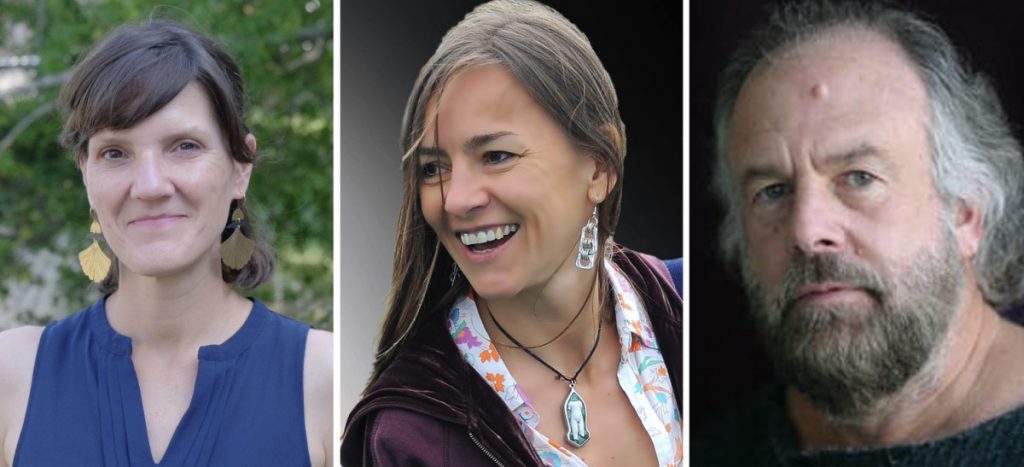
Kaitlyn Finchler
Staff writer
Language and culture influence everything, especially writing. In the last Writers’ Center Reading of the season, three writers-in-residence will dive into their own work, as well as how culture impacts the writing process.
Week Nine’s prose writer-in-residence Lenore Myka and poets-in-residence Mihaela Moscaliuc and Michael Waters will give the last Writers’ Center Reading of the season at 3:30 p.m. Sunday in the Hall of Philosophy.
Moscaliuc will read from her most recent collection Cemetery Ink, Waters will read from his yet-to-be-published Sinnerman and Myka will read from her essay “Florida Woman.”
“We’ve been to Chautauqua before, so we have a sense of the audience and the poems people might be interested in,” Moscaliuc said. “I try to stay aware of the theme of the week.”
To coincide with the week’s theme, “The Global South: Expanding the Scope of Geopolitical Understanding,” Moscaliuc said she will read poems about migration, immigration, politics and borders.
Myka said she draws inspiration from a variety of different things, but mostly personal experiences and the natural world. On the other hand, Moscaliuc had never written poetry before coming to the United States from Romania in the 1990s.
“I came to America in 1996 to pursue a graduate degree in literature,” she said. “My Ph.D. was on postcolonial literature. I wasn’t planning to become a writer so I had never written any poetry or any creative writing in Romania.”
Moscaliuc’s writing started as an infatuation with the English language and musical inspirations such as Bob Dylan, Bruce Springsteen, Leonard Cohen, Aretha Franklin and Jimi Hendrix.
“Listening to the sound of words made you want to learn the language,” she said. “That’s why Cemetery Ink … remains so important in my writing. I’ve never written poetry in Romanian, but I love reading other people’s work and translating it into English.”
Myka went to Romania with the Peace Corps in the ’90s two weeks after graduating from college.
“I taught high school in the western part of the country, close to the Hungarian border,” she said. “It was a life-changing experience. I have friends, both Romanian and American, from that time that I am still close to today. It inspired all of the material from my first short story collection.”
Living in another country, Myka said, changes a person’s perspective on the world.
“I think I have a much broader sense (of) the influence and impact, both positive and negative, of American culture on the rest of the world,” she said. “But, that really has informed my writing (and) how I teach certain things.”
As a husband-and-wife writing pair, Waters said Moscaliuc is always his first read on a poem.
“I can go over a poem again and again or revise and revise, and I can show it to her and she can show me immediately which three words I can take out without writing the poem,” he said. “I tend to write by ear, then I let the sounds of words carry me forward in the poem.”
Moscaliuc said Waters is an incredible craftsman, and wouldn’t have started writing if it wasn’t for him.
“I can absolutely trust his ear, craft and eye for detail with my work,” she said. “He’s really the only person that I share the work with and almost invariably take all of his suggestions. When I see him writing, it makes me want to write.”




